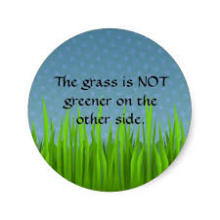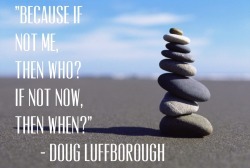Excerpt from Chapter 3: The Grass is Not Always Greener
 Monday, June 30, 2014 at 11:12AM
Monday, June 30, 2014 at 11:12AM  That summer was the worst. Instead of playing outside like most kids my age, I was so depressed about staying back in the third grade and having to face the same teacher again that I spent most days in my room, sleeping and listening to music. My Huffy bike collected cobwebs. When my neighborhood friends came to the door, I told them that my mother would not let me play with them anymore. “Just leave me alone,” I said quietly, shutting the door.
That summer was the worst. Instead of playing outside like most kids my age, I was so depressed about staying back in the third grade and having to face the same teacher again that I spent most days in my room, sleeping and listening to music. My Huffy bike collected cobwebs. When my neighborhood friends came to the door, I told them that my mother would not let me play with them anymore. “Just leave me alone,” I said quietly, shutting the door.
The saddest point of my summer came when my mother was supposed to attend her stepsister’s wedding. Several months earlier, I had overhead my mother talking with Joe about her stepsister wanting her to be in the wedding. “Do you think you could give me money to buy a dress?” she asked. “And help me get to New Jersey?”
Joe was already messy on Schlitz, and he stroked her arm with a big paw. “Sure, baby,” he said, “if you help me out a little, too.”
As the months until the wedding became weeks, and then the weeks became days, Joe, sober, withdrew his promise. “No, I will not buy you that dress for that wedding, and no I will not give you the finances to go to New Jersey. Figure it out on your own.”
Like I had in the principal’s office, my mother dropped to the floor. Tears streamed from her eyes like rapids from a breached dam. Between moans, she rocked her body back and forth and prayed, “Lord, have mercy. Jesus . . . Jesus . . . Jesus.” In total desperation, she pulled on one of his pant legs and begged him to help her. He looked down at her with a sense of pity, cracked open a can of Schlitz, lit up a cigarette, and walked out back to have a smoke. It was like a scene out of The Color Purple. In my entire life, I had never seen my mother so broken, so painfully defeated by life’s disappointments.
My mother stayed on the floor for some time and then slowly rose and picked up the phone. “Doreen, I’m sorry—I won’t be coming to your wedding after all.”
For the next few weeks, my mother spent most of her time laying down in her room, sharing only one or two words of conversation and sleeping off the pain and disappointment she was feeling. It was as though this event had stolen all the joy from her heart. Sometimes, she sat in the room all by herself reading her bible and talking with God about things only they could understand.
After that, my mother turned to the bible more and more. She carried her bible, worn and tattered, everywhere she went—cleaning homes, at the grocery store, on the bus, and even to social gatherings at our school. She talked to God out loud, not caring who else was around, and started sitting Darrell and I down for weekly bible studies. One Sunday evening, she shared that since we did not go to church on a regular basis, she wanted to bring church to our home.
“I want you all to know God’s word, and the best place for me to start with you is in the book of Proverbs,” she said.
I thought, Proverbs, why this book?
“Since your dad is not in your life and Joe is doing his own thing, let Proverbs be your Father,” Ma said. “Let it give you spiritual guidance, wisdom, and insight on how you need to live your lives.”
So we all sat down once a week and listened to my mother explain the book of Proverbs to us. She pointed out that we needed to live a life that honored God, pay attention to our actions toward others, and ask God for wisdom and discernment in all we did. Joe was never interested in our bible studies. He just snickered at us as if we were crazy. On some occasions, even we thought my mother was crazy, all her out-loud talk to a God she could not see but so desperately believed in. There were so many times growing up that I questioned whether God was really there and if he really heard my mother’s cries for a different life. I see now that he was there, listening, and my siblings and I have become the answer to her prayers, but back then, it was my mother’s way of keeping a positive perspective in the midst of deep sorrow.
Please share this blog throughout your network and order your copy of Watch Me Rise today at:
https://store.roundtablecompanies.com/SearchResults.asp?Search=doug+luffborough&Submit=GO



